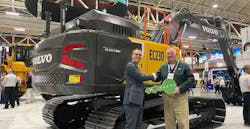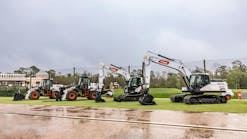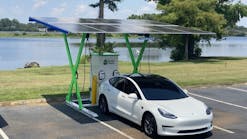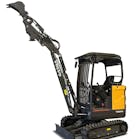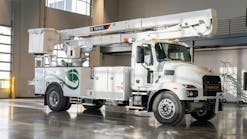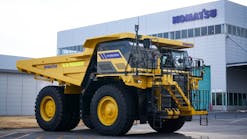WM will test an electric excavator from Volvo Construction Equipment at one of its facilities on the East Coast. The pilot will test the EC230 excavator performing the same tasks that diesel-powered excavators do in waste applications.
WM, formerly known as Waste Management, will track data and share feedback with Volvo CE.
“This is the first pilot in North America, but the EC230 Electric excavator has been thoroughly tested by customers overseas, and in each case, it has offered the same performance as its diesel equivalent with the added benefit of no direct emissions,” said Stephen Roy, president of Region North America, Volvo CE, in a statement. “We’re excited to work with WM on a project that aligns with both of our organizations’ values of being good environmental stewards.”
See also: Waste Management: Savings now, and later
For more than 20 years, WM has been committed to alternative fuel options, including compressed natural gas (CNG) and electric vehicles as well as other technologies to help reduce overall emissions.
“WM has a long track record of incorporating alternative fuels into our operations, and we’re exploring technologies like electric that support our mission to reduce emissions,” said Bryan Tindell, VP of disposal operations, WM, in a statement. “We have a longstanding relationship with Volvo CE when it comes to working toward sustainable solutions related to alternative fuels and energy sources. This electric excavator is expected to improve machine uptime and increase productivity, and our pilot could help map out the next steps for implementing additional electric and other sustainable technologies into our heavy equipment fleet.”
See also: Bare-frame rebuilds work for Waste Management
The 23-ton EC230 Electric excavator is a general-purpose machine designed to run in the same applications as a comparably sized diesel excavator, including extraction, earthmoving, and grading for site preparation in the building segment, as well as waste and scrap handling in the recycling and waste segments.
It has the same digging forces and lifting capacities as its diesel equivalent in the Volvo CE lineup, and it supports the same attachments and services. The main difference is that it is powered by batteries. The lack of an engine results in zero direct emissions, less noise, reduced maintenance, and lower total cost of ownership.
When the EC230 Electric excavator becomes commercially available in 2024, it will join the Volvo CE six-machine lineup of electric machines, which is one of the largest in the industry.
“Electric construction equipment thus far has mostly been compact models, but to make the kind of progress we want toward a more sustainable future, larger machines need to be part of the equation,” Roy said. “Volvo CE is proud to be leading the industry into that future along with sustainability driven companies like WM.”
Source: Volvo CE
